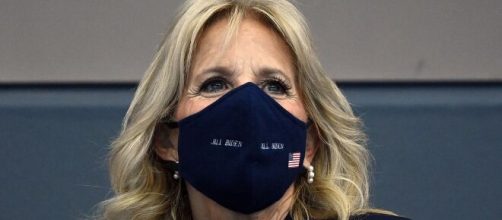The wait is over, and Tokyo Olympics 2020 is finally on. It suffered a delayed start because of the coronavirus, a highly contagious disease, and has not spared any country. The death toll runs into thousands.
The advice of the medical fraternity is to stay away from crowded places, avoid direct contact with strangers and maintain social distancing. These restrictions have disappointed those who love sports, and the Olympics was no exception. The athletes prepare for years to show off their talents and occupy the victory stand to make their country proud.
They want their fans to cheer them, but this year, things are different.
Tokyo Olympics finally took off, and US First Lady Jill Biden attended as the guest of honor. Alongside her was Yoshihide Suga, the Prime Minister of Japan.
Normally held in packed venues, the opening ceremony was on a low scale in front of empty stands. Coronavirus robbed the event of its sheen. Normally there are hundreds of thousands of spectators at the venues with millions of TV audiences. Not this time. Tokyo Olympics and Paralympic Games 2020 is shifted to 2021 due to the threats of coronavirus.
Olympics is a platform to show the power of sport and athletes
Hashimoto Seiko is President of Tokyo's Organizing Committee of the Olympic and Paralympic Games.
During her speech, she dwelt on the pandemic. She said: "The whole world has faced immense challenges with Covid-19." She also added that the time has come for athletes to reveal their mettle and the power of sport. The theme for Tokyo Olympics 2020 is the unity of nations and their fight against the global pandemic.
A man and woman for each team are the traditional flag bearers. They represent the “Olympic Values” of equality and diversity. The threat of coronavirus forced the organizers to reschedule the international event and conduct it minus the crowd of supporters and fans. The duration of the Games is until August 8, which will see the best athletes of the world trying to set new records.
Japan had to tone down Olympics 2020
The responsibility of carrying the Olympic torch to the cauldron at the opening ceremony fell on tennis star Naomi Osaka. The rescheduled Tokyo Olympics 2020 was a major letdown for the organizers. It was supposed to be a spectacular event, and Japan was preparing for it for 18 months.
However, coronavirus played spoilsport. It was in 2013 that the country got the go-ahead for the 2020 Games. There was jubilation all around, but it was short-lived. The virus struck, and there were lockdowns and travel restrictions. Some towns were unwilling to host the athletes of the Olympics because they feared the spread of infection.
There were signs of opposition to the Olympics.
With their respective nations' flags, the athletes paraded into Tokyo's Olympic Stadium with their delegations. According to Sky News, the delegations came in the order of the Japanese alphabet with Iceland and Ireland preceding Azerbaijan. W' flags the athletes.
However, there was opposition to the Olympics from certain quarters. The reason was the staging of the event amid the coronavirus pandemic. It is understandable because of the nature of the disease. The stadiums were more or less empty. Public opinion polls indicated the mood of Japanese residents.
Most of them did not approve of the decision to hold the world’s prestigious sporting event in the capital. There were hardly 1,000 dignitaries and news media members present to witness the event live in a stadium that has the capacity to host thousands of people.


